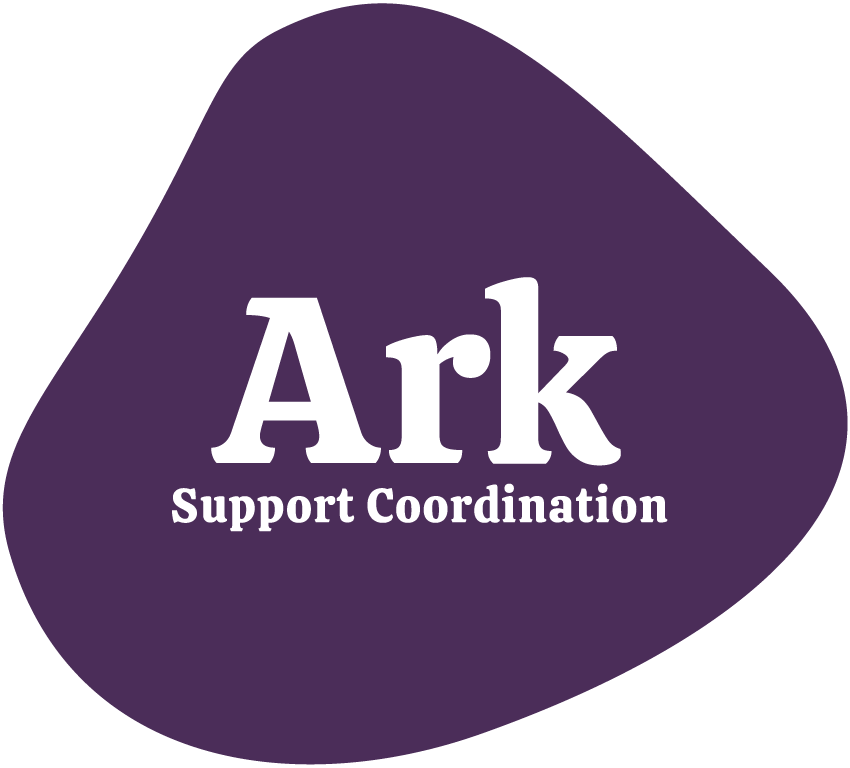Positive Behaviour Support
Positive Behaviour Support is a service that works with participants who need assistance in discovering what a good quality of life looks like for them. This includes being able to identify what is and isn’t working for them and their current supports, assess whether there are unmet needs, and review how they are communicating their needs with others.
The NDIS usually funds Positive Behaviour Support when things aren’t going well and clients are using “behaviours of concern” to communicate their needs. It is the role of a behaviour support plan to help clients work through addressing these behaviours, with the goal of an increased quality of life. Ark works with clients and all their supports to find solutions, creating both proactive and responsive strategies to address the things that aren’t going well.
What is a positive behaviour support practitioner and what do they do?
A positive behaviour support practitioner (sometimes referred to as a PBS practitioner) is an experienced professional that is assigned to lead the support process through understanding behaviours, including their influences and impacts, before designing effective interventions and solutions.
Once a positive behaviour support practitioner has been assigned to a client, they will generally provide an “interim response” behaviour support plan in the first 30 days of engagement. This plan will describe who the person is, what their needs are, what challenging behaviours are occurring and strategies to respond to them.
Following the implementation of an interim response plan, PBS practitioners will complete a functional behavioural assessment and deliver a comprehensive behaviour support plan when appropriate within the first 6 months of engagement.
As part of this process, PBS practitioners will identify the use of and prescribe “restrictive practices” as they are needed. Restrictive practices are practices used to stop a person from hurting themselves or others. The practices themselves are restrictive in nature by taking away the person’s rights and freedoms, and they are closely monitored by the NDIS.
Throughout this journey, positive behaviour support practitioners are there to support the person and everyone around them in using the behaviour support plan and monitoring its effectiveness.
What is the PBS capability framework?
The PBS capability framework is a document that details what providers need to do in order to offer specialist behaviour support through the NDIS.
There are four capability levels that are highlighted in the framework: core (or entry-level), proficient (or more experienced), advanced (or very experienced and highly skilled) and specialist (experienced and skilled in particular areas of interest).
What funding do I need in my NDIS plan for positive behaviour support?
NDIS participants who wish to access PBS need to have “improved relationships’ or “behaviour support” listed in their plan.
For participants who don’t have these listed in their NDIS plan, our team can use “improved daily living” funding to complete a brief assessment and provide a report that recommends behaviour support in future plans.
How can NDIS participants be referred to Ark for positive behaviour support?
NDIS participants may be referred to Ark through our online enquiries form, through our intake@arksc.org email address or by phoning our team on (08) 6373 7500.
The PBS program coordinator will then phone the participant to discuss the referral and allocate a practitioner.
FAQs
-
Any individual who is consistently using behaviours of concern in the way that they communicate may need a positive behaviour support plan.
In order to get a positive behaviour support plan, clients will need to be assigned a PBS practitioner to ensure strategies and potential solutions to address the behaviours of concern are being explored.
-
While positive behaviour support plans will be different for each individual, it’s important that they are always tailored to the specific needs of the client in order to address their particular behaviours of concern and increase their overall quality of life.
An interim plan will be a shorter and more succinct document that allows PBS practitioners to implement strategies early and establish an approach, whereas a comprehensive plan will be longer and more detailed to ensure the longevity of outcomes. -
No, a PBS practitioner is not the same as a psychologist or social worker. While PBS practitioners may be trained or qualified in psychology and / or social work, their focuses are slightly different and dependent on the individual accessing positive behaviour support.
PBS practitioners are engaged to address behaviours of concern and manage them with a calculated approach and relevant strategies. Psychologists are typically focused solely on mental and emotional wellbeing, while social workers offer guidance, support and help address environmental or social issues that their clients may be facing.



